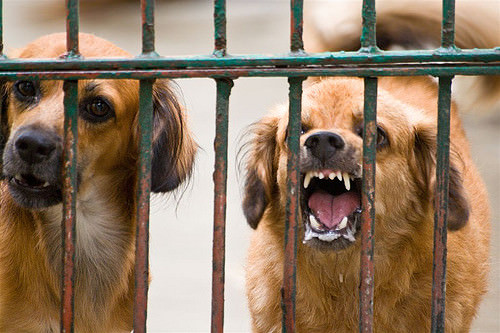This question is much more complicated than it may seem. First, let’s look at rabies as a disease. Anyone that watched Ole Yeller already has an idea what the disease known as rabies is like and in this case, movie magic did not really over-dramatize it. Rabies is a neurologic (attacking the nervous system) disease caused by a virus. A rabies patient will suffer and die a horrific death and even worse, rabies is zoonotic (a disease that can be spread from animals to humans). Even in 1956 (when Ole Yeller was published), everyone knew that a rabid dog had to be destroyed to protect the people.

Another unique and potentially distressing thing about rabies is that there is a prolonged time between exposure to the virus and the development of symptoms. We live so closely with our dogs that they could have been exposed and we might not know, and then our family is also exposed. This is not a little cold virus that we will be able to shake off in a week. This is DEATH for your dog and potentially your family.
Mandatory rabies vaccination in my state of Tennessee began in 1953 and even though Tennessee still sees cases of rabies in wildlife every year, the incidence of human infection has become rare. In the US at large, human cases of rabies are now only 1-3 cases each year, thanks to vaccine programs. Although according to the CDC, hundreds of cases in companion pets are reported every year. In countries where rabies vaccines are not readily available, tens of thousands of people die yearly from rabies and 90% of all human exposure is from rabid dogs. It seems more heartbreaking that 40% of deaths from rabies worldwide are children under the age of 15.

Rabies vaccination is extremely effective, making the disease 100% preventable, so based on efficacy coupled with the severity and fatality of the disease itself, the idea of vaccinating dogs is a great one.
But is there a risk to your dog?
The media and internet are filled with individuals who swear their dogs were hurt by vaccination, but in reality, adverse affects due to high quality rabies vaccines are rare¹. More pets die from preventable diseases than have problems with their vaccines and certainly in the case of rabies, there is human health significance as well. Since we live in a country where rabies has been all but eradicated, the threat can seem vague, but actually it was widespread rabies vaccination, required by law, that contained this devastating disease in the first place.
Like everything in life, one is wise to weigh benefit against risk in all decisions. In this case, the risk of human beings contracting rabies far outweighs any small risk to dogs from vaccination.

*Extremely important to note: you need to make sure that your dog is vaccinated with the highest quality, filtered vaccines from a well known manufacturer to minimize the chance of any kind of allergic reaction. Most reactions are caused by the ingredients included in the injection and not the active ingredient itself. All rabies vaccines are not equal. Ask your veterinarian to share with you why he/she has chosen the one they offer.
Find me on Facebook and ask your questions! Maybe one will be chosen for an upcoming Ask A Vet. Click here.
1.Valli, J. Lois. “Suspected Adverse Reactions to Vaccination in Canadian Dogs and Cats.” The Canadian Veterinary Journal 56.10 (2015): 1090–1092. Print.
